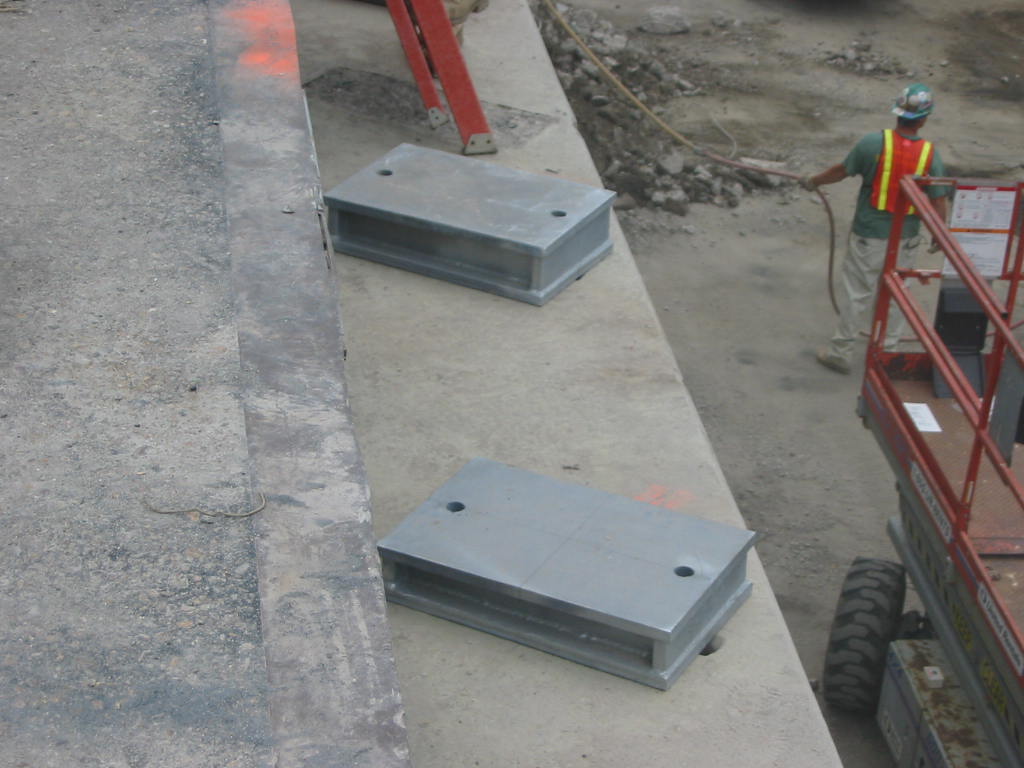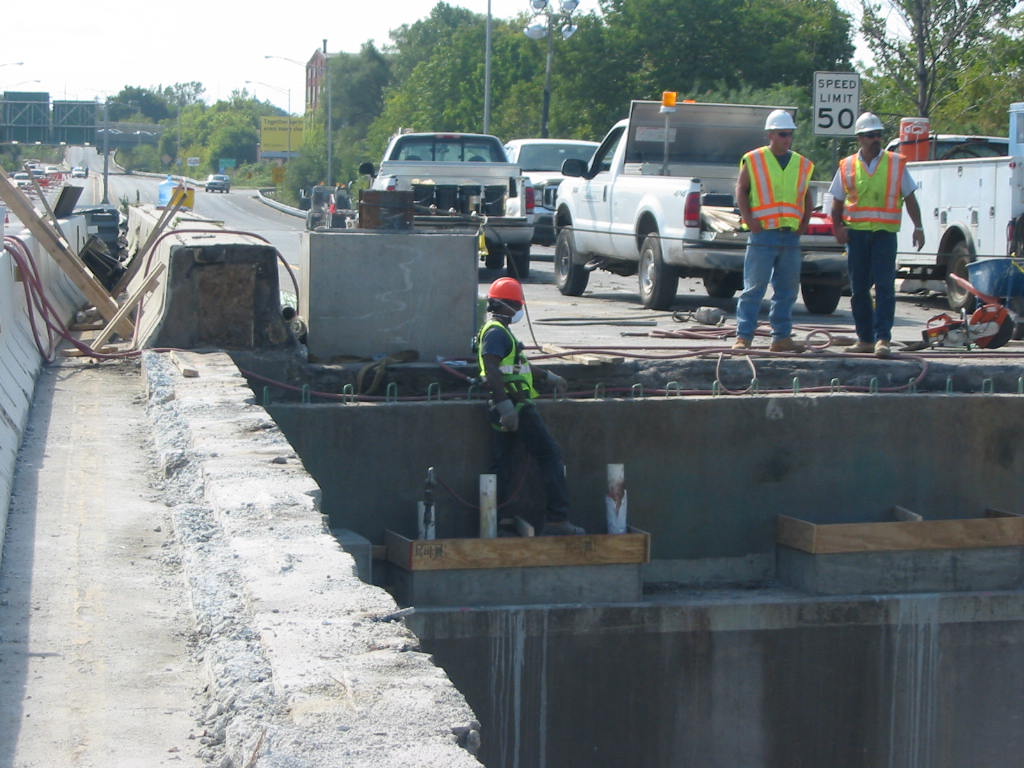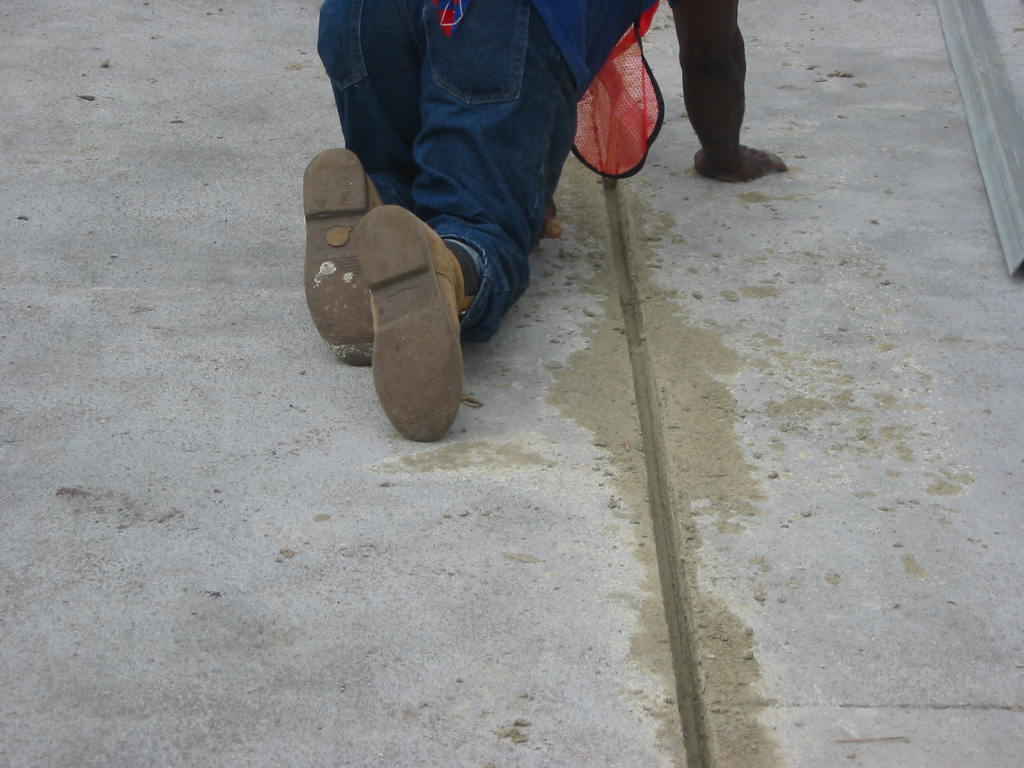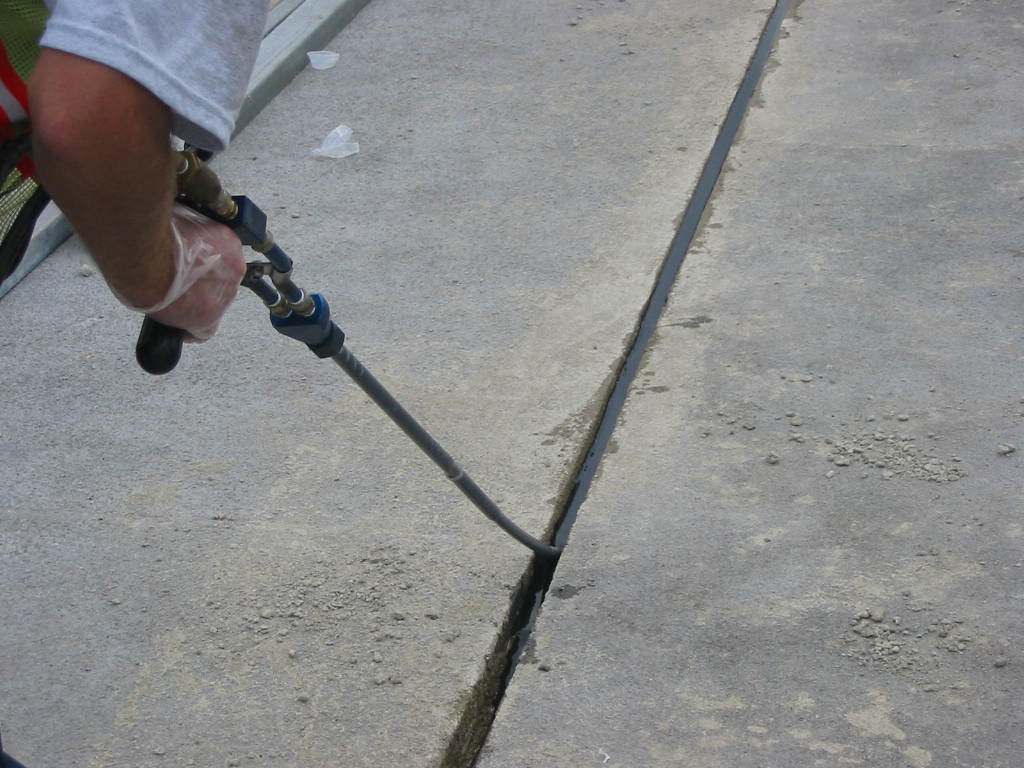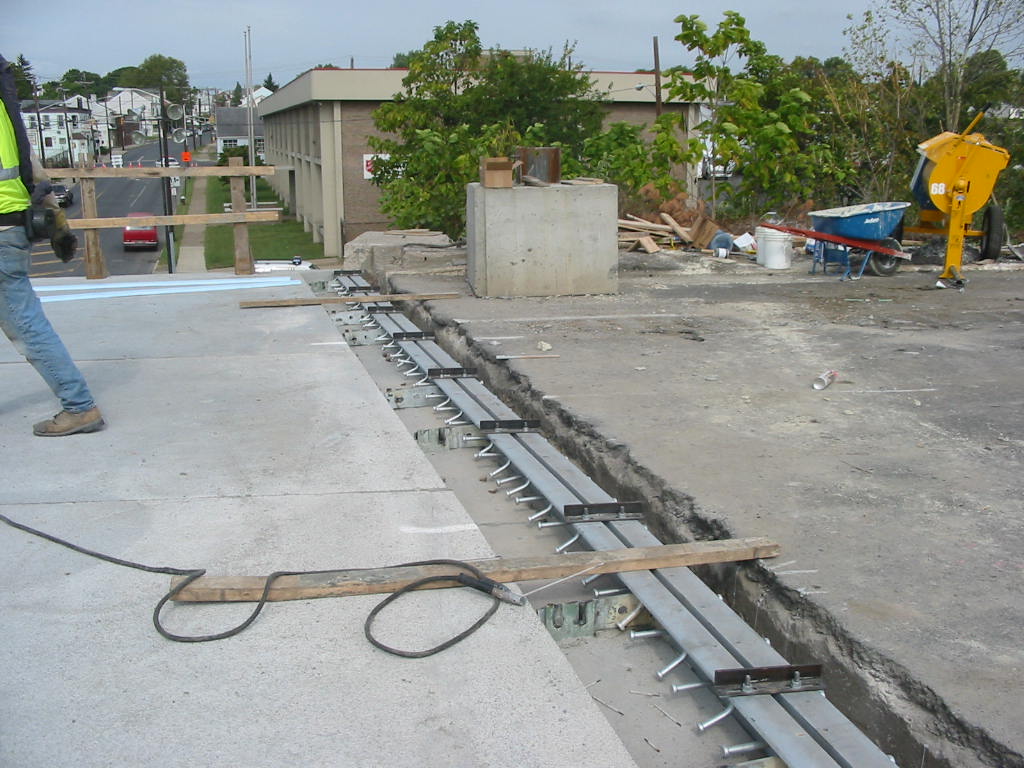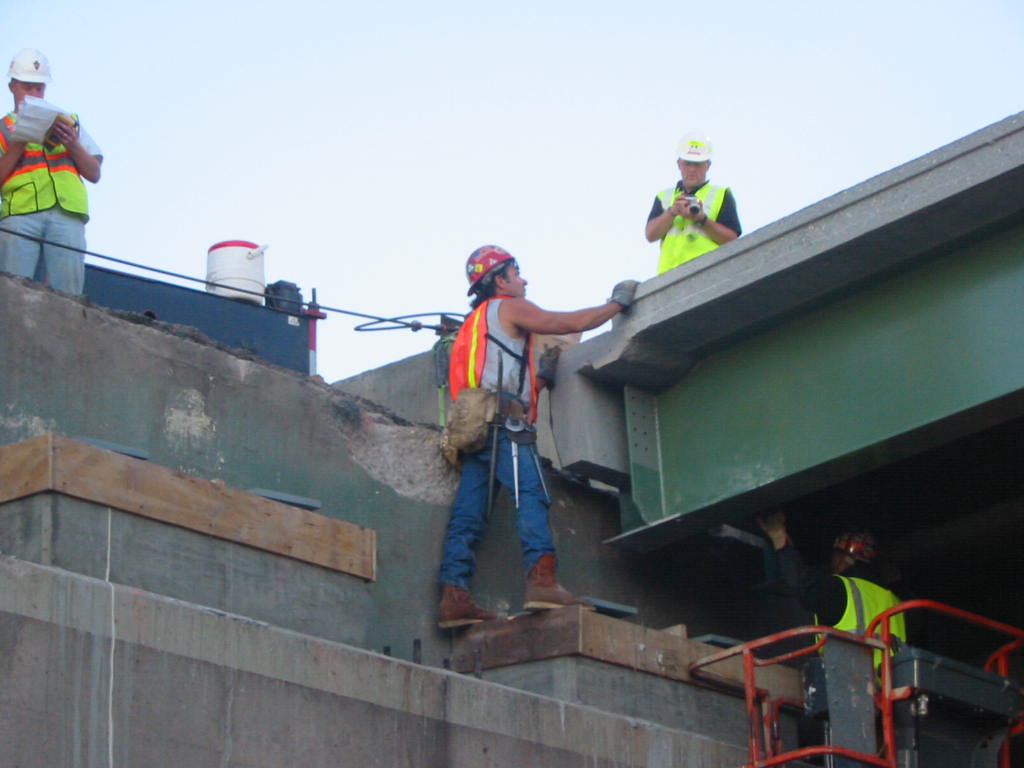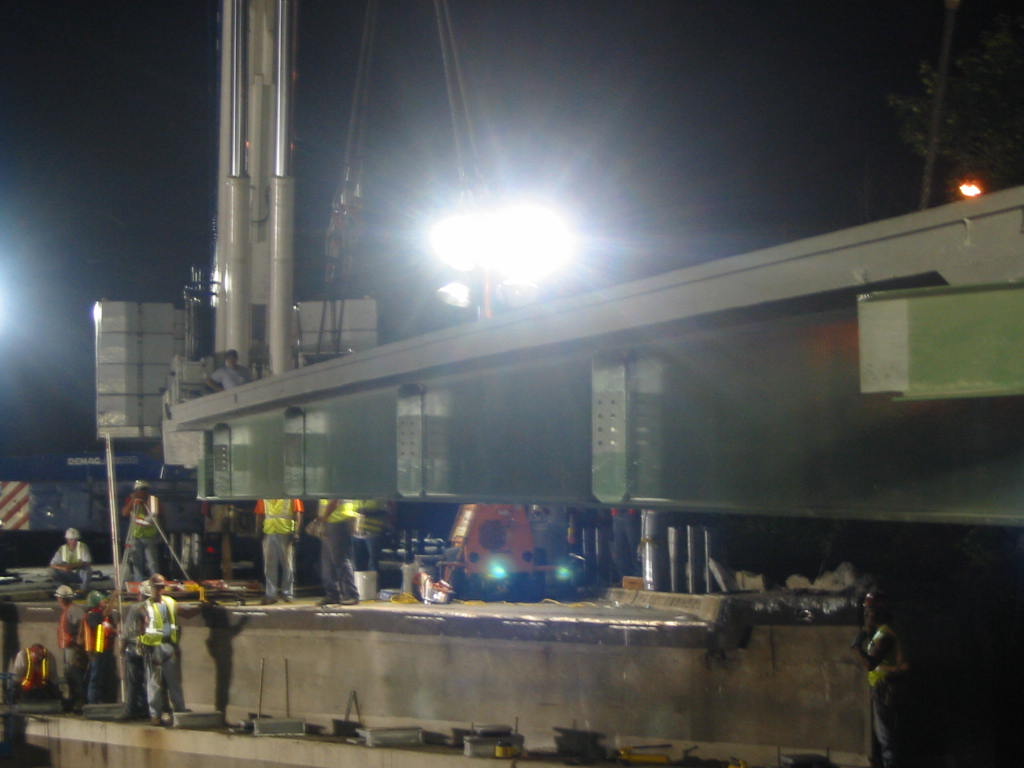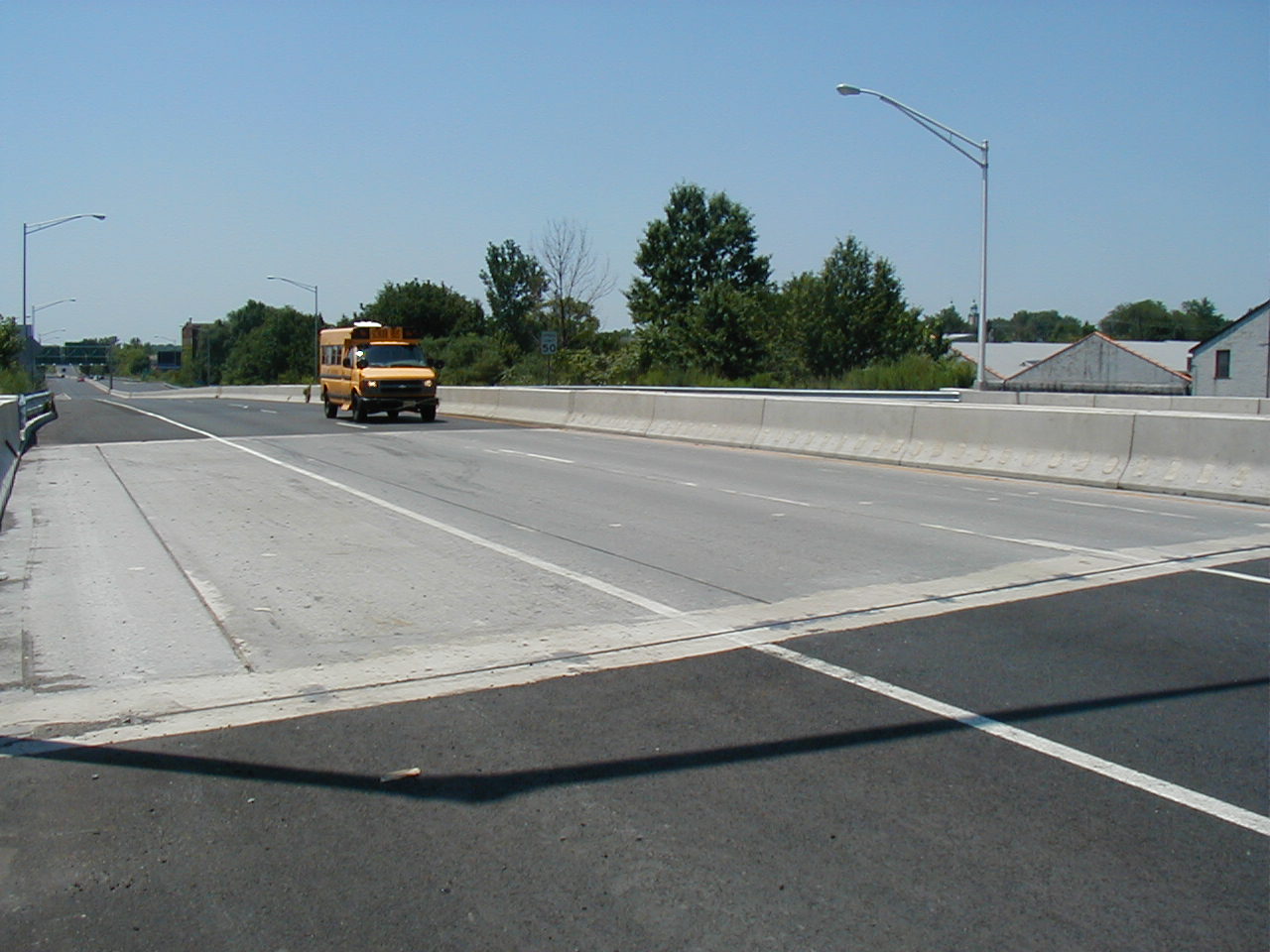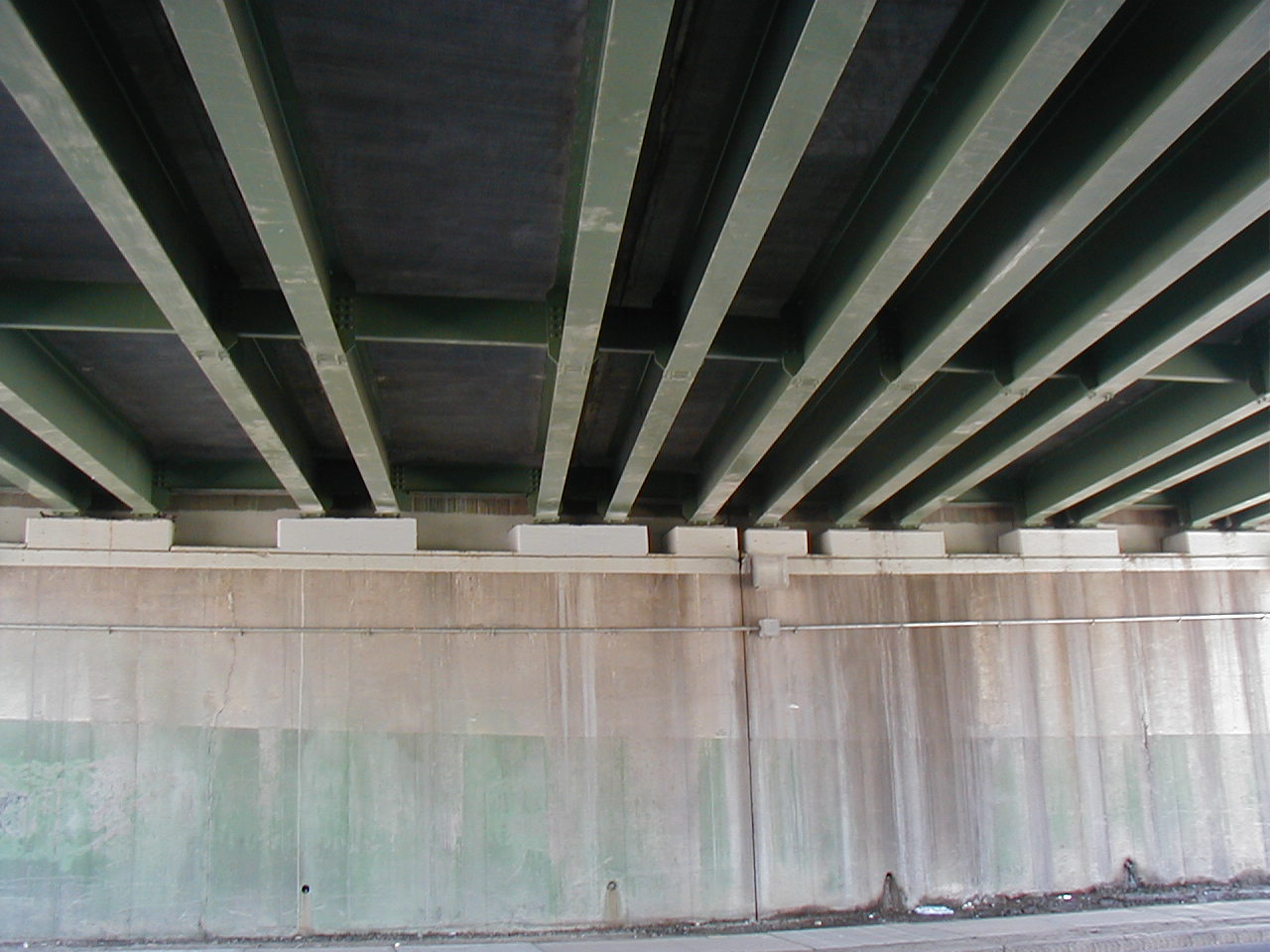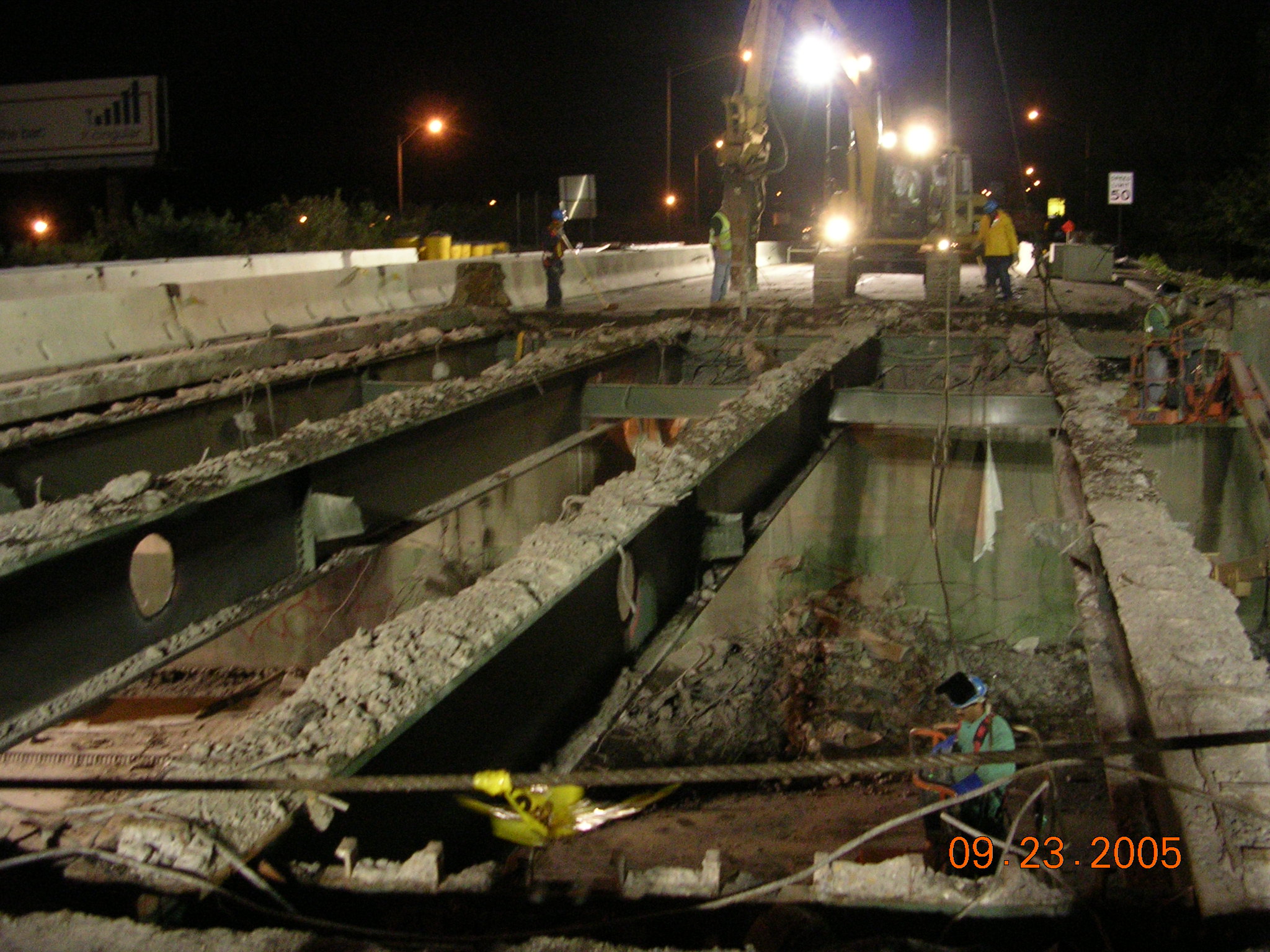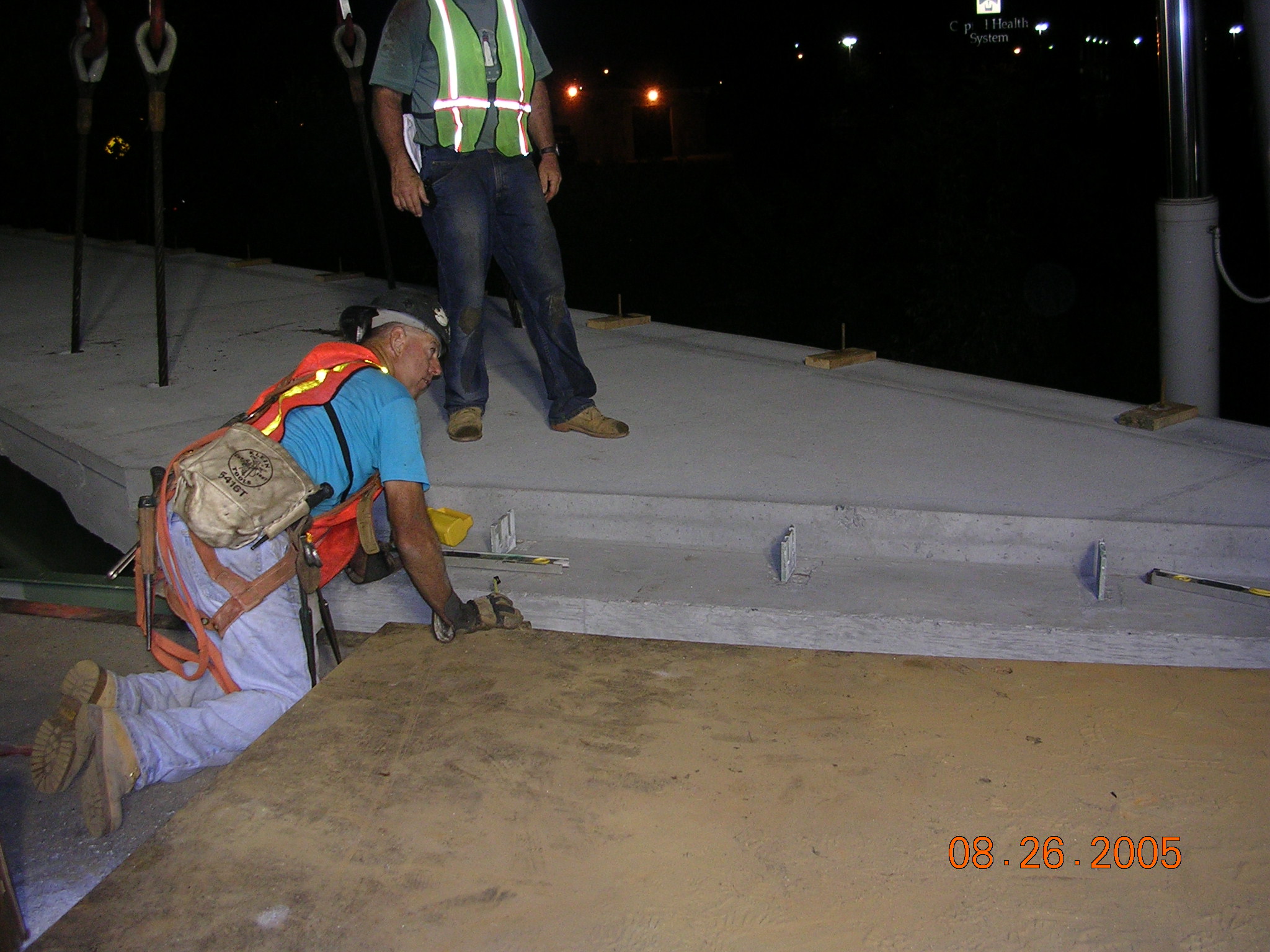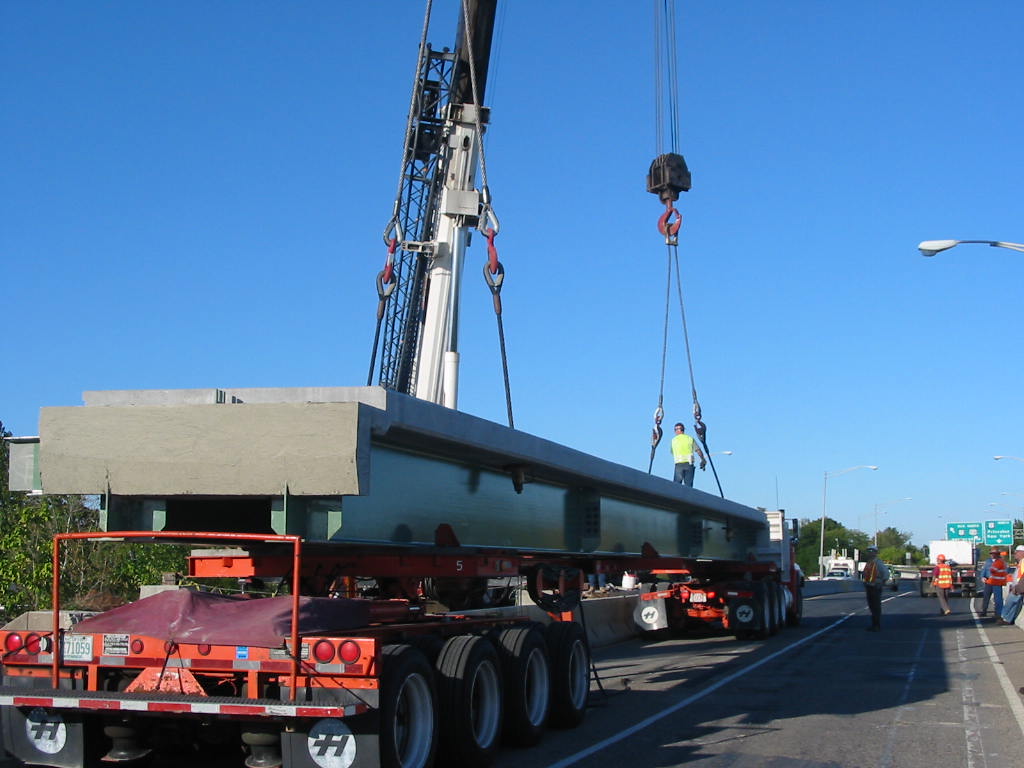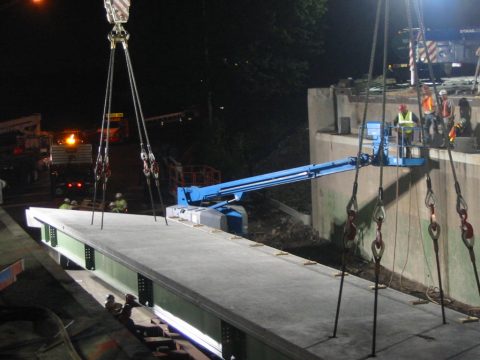State: NJ
County:
Owner: State
Location: Urban
Spans: One-span
Beam material: Steel
Max Span Length (ft.): 86.8
Total Bridge Length (ft.): 86.8
Construction Equipment Category: Conventional
ABC Construction Equipment: Conventional
State ID Number: Olden: 1101-159 ; Mulberry: 1101-161
NBI Number: BR NBIS753
Coordinates
Latitude: 40.2345657 | Longitude: -74.7485199
Bridge Description
Project Summary:Project Location:
On Route 1 through the city of Trenton in Mercer County on western edge of New Jersey
Impact Category:
Tier 2 (within 3 days)
Mobility Impact Time:
ABC: One weekend closure per superstructure replacement (56 hours or less per bridge) ; Conventional: 22 months for conventional design & construction
Primary Drivers:
reduced traffic impacts, reduced onsite construction time, improved work-zone safety, improved material quality and product durability
Dimensions:
Over Olden Avenue Connector: 86.8-ft-long and 35.0-ft wide single-span two-lane MDcBs bridge; Over Mulberry Street: 60-ft-long and combined 82.2-ft wide single-span four-lane MDcBs bridge
Average Daily Traffic (at time of construction):
50000
Traffic Management (if constructed conventionally):
Traffic management alternative, if constructed conventionally: extended use of detour
Existing Bridge Description:
The decks of three single-span bridges, one at the Olden Avenue Connector and two adjacent bridges at Mulberry Street, were deteriorated and required replacement. The replacement of these three bridges was the NJDOT’s first Hyperbuild project.
Replacement or New Bridge:
Each superstructure span consists of five full-length segments of varying width, each with two Grade 50W steel girders and a 9-inch-thick composite concrete deck (Inverset-type) system. The 86.8-ft-long bridge span over Olden Avenue required W36x182 girders, and the 60-ft-long bridge spans over Mulberry Street required W30x99 girders.
Construction Method:
The 15 segments were designed and fabricated at a New York precast plant, assembled at the plant to verify field tolerances, and trucked to an airport parking lot near the bridge. The segments were required to be onsite 24 hours prior to the start of demolition of the existing bridge. The contract specified high performance concrete for all concrete on the job.August 2005 Weekend:The Route 1 bridge over the Olden Avenue Connector was closed at 7 p.m. on a Friday, and traffic was rerouted onto a 5-mile detour. The bridge was demolished in place using conventional methods. The existing abutments were repaired and new bearing seats constructed. The prefabricated superstructure was then erected. The longitudinal joints between superstructure segments were grouted, primed, and coated with a polymer sealant. The expansion joints at the ends of the span were then completed. The cast-in-place parapets were connected to the outside segments with bars in threaded inserts. No overlay was applied. September 2005 Weekend:The Route 1 Southbound bridge over Mulberry Street was closed at 7 p.m. on a Friday, and traffic was rerouted onto a 5-mile detour. The construction methods and time required to replace this bridge was similar to the bridge over the Olden Avenue Connector. Parapets and median barriers were cast-in-place concrete. October 2005 Weekend:The Route 1 Northbound bridge over Mulberry Street was closed at 7 p.m. on a Friday, and traffic was rerouted onto off- and on-ramps. The construction methods and time required to replace this bridge was similar to the bridge over the Olden Avenue Connector. Parapets and median barriers were cast-in-place concrete. Each of the three bridges was allowed a 57-hour window from complete closure to re-opening of both lanes. If this window was exceeded, a lane occupancy charge would be assessed, up to $10,000 per day. Incentives were also included to encourage the contractor to minimize onsite construction time even further than 57 hours per bridge. For the bridge over the Olden Avenue Connector, an incentive of $1,500 per hour was specified if the work was completed in less than 57 hours, not to exceed a maximum of $27,000. For each bridge over Mulberry Street, an incentive of $2,000 per hour was specified if the work was completed early, not to exceed $36,000.Liquidated damages were also specified. The contractor would be charged $1,500 per hour if he took longer than 57 hours to open the bridge over the Olden Avenue Connector to traffic, and $2,000 per hour if he took longer than 57 hours to open either of the bridges over Mulberry Street. Also, the contractor would be charged $4,200 per day if the bridges were not substantially completed by November 16, and an additional $900 per day if all work was not completed by January 13, 2006.All three bridges were opened in less than the required 57 hours. The bridge over the Olden Avenue Connector was opened in 56 hours, the bridge over Southbound Mulberry was opened in 51 hours, and the bridge over Northbound Mulberry was opened in 54.5 hours. With all three bridges opened well before Monday morning rush hour, the contractor earned an $18,500 incentive.
Stakeholder Feedback:
Each bridge is expected to see a 75-100 year service life due to the quality of its prefabricated superstructure, the use of high performance concrete, and the attention given to connection details. Conventionally constructed bridges have an average minimum 50-year life in New Jersey.
High Performance Material:
High performance concrete (HPC) for all concrete elements
Project Planning
Decision Making Tools:Site Procurement:
Project Delivery: Design-bid-build
Contracting: Full lane closure; Lane rental; Incentive / disincentive clauses
Geotechnical Solutions
Foundations & Walls:Rapid Embankment:
Structural Solutions
Prefabricated Bridge Elements: MDcBs (Modular Decked Beam)Prefabricated Bridge Systems:
Miscellaneous Prefabricated: CIP reinforced concrete closure joints; Grouted key closure joints
Costs & Funding
Costs:The engineer’s estimate for the project was $ 3.8 million. The low bid was $3.5 million ($297,000 = 8% lower than the engineer’s estimate). There were five bidders. The cost per square foot of bridge was $370 compared to $170 for conventional construction in this region in 2005.The design and construction savings, including delay-related user costs, were in excess of $2 million.
Funding Source:
State Only
Incentive Program:
Additional Information
Downloadable Resources
Contract Plans:Specifications:
Bid Tabs:
Construction Schedule:
Other Related Information:
Summary Sheet:
120702-ABC_New_NJ_2005_Route-1
Other Related URLs:
Go to:
http://www.fhwa.dot.gov/bridge/prefab/successstories/091104/
New Jersey Department of Transportation
Contacts
Eli D. (Dave) Lambert III, P.E.
Director of Bridge Engineering and Infrastructure Management & State Transportation Engineer
New Jersey Department of Transportation
Dave.Lambert@dot.state.nj.us
609-530-4235



